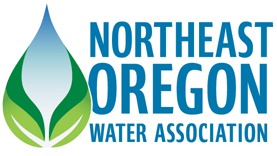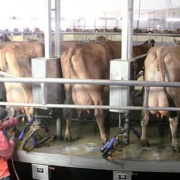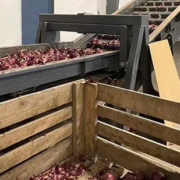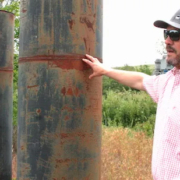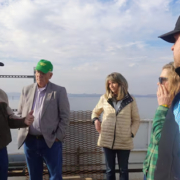Bob Hale dies at age 69, remembered as visionary of Oregon agriculture
Published 3:30 pm Tuesday, August 8, 2023
By George Plaven
 ECHO, Ore. — Few people played as big a role in the evolution of Columbia Basin agriculture as Bob Hale.
ECHO, Ore. — Few people played as big a role in the evolution of Columbia Basin agriculture as Bob Hale.
He was there for the good times, as irrigation transformed the region in northeast Oregon from scrubby desert into an oasis of high-value farmland. And he was there for the difficult times, as water cutbacks forced growers to think about how they can be more sustainable.
All the while, Hale built a successful farming operation that employed hundreds of people, growing and processing onions for a who’s who of well-known restaurant chains — including Subway, Chipotle, Panera Bread, Wendy’s and Applebee’s.
“He was one of the foundational elements of the Columbia Basin,” said Craig Reeder, who worked with Hale for over two decades.
Hale died July 30 following a 34-month battle with advanced cancer. He was 69.
He is survived by his wife, Kelly Kilkenny Hale; daughter Hannah Hale Redfern; grandchildren Rowan, Hank and Bobby Redfern; and siblings Chris, Doug, Jackie and Rick. He was preceded in death by his parents, Bob and Adell Hale.
‘Hard-charging visionary’
Hale grew up on a farm outside Echo, Ore., and returned to the area after earning his bachelor’s degree from Lewis & Clark College in Portland.
Along with brothers Doug and Rick, the Hales bought their first 500-acre farm in the Butter Creek Valley straddling Umatilla and Morrow counties. They initially grew hay and grains while supplementing their income with off-farm jobs.
Hale Farms would eventually grow to 40,000 acres, with a list of crops including potatoes, onions, carrots, peas, corn, blueberries, alfalfa, wheat, barley and grass seed.
Reeder, who joined Hale Farms as chief financial officer in 2000, said Hale was a hard-charging and visionary leader.
“He was always out in front of the game,” Reeder said. “He took risks, but they were calculated risks.”
Hale also founded River Point Farms in Hermiston, which became the largest producer of fresh onions in the country. Reeder said the company supplied onions for every Subway restaurant in North America — more than 20,000 locations — almost year-round.
“He put those marketing relationships together,” Reeder said. “He was just a machine in that regard.”
Focus on sustainability
The Hale companies together processed more than 1 billion pounds of vegetables annually and employed more than 700 people.
Hale Farms and River Point Farms later sold in 2016 to AgriNorthwest, a large farm owner and operator based in Kennewick, Wash.
Fred Ziari, founder and CEO of IRZ Engineering and Consulting in Hermiston, said Hale was a close friend for 40 years. His company developed the irrigation systems at Hale Farms using advanced technology to conserve water and energy.
“We had satellite sensors in all of his fields,” Ziari said. “He believed the best way to grow crops was to manage water, energy and fertility the right way.”
Hale’s focus on sustainability helped lay the foundation for new generations of farmers in the basin now striving to recharge depleted groundwater aquifers.
Between 1976 and 1991, the state Water Resources Department designated four critical groundwater areas, leading to water curtailments and taking prime farmland out of production.
J.R. Cook, founder and director of the Northeast Oregon Water Association, has spent years planning and coordinating a series of projects to deliver mitigated water from the Columbia River, allowing farms to rely less on groundwater pumping.
Those efforts, Cook said, were built on the institutional knowledge of longtime growers like Hale.
Value of irrigation
Cook said Hale was instrumental in communicating how a small amount of Columbia River water could benefit sustainability while also growing the region’s farm economy.
Dryland wheat, grown without irrigation, yields about $100 per acre. Add 1 acre-foot of water, and the value jumps to $500 per acre. Add 3 acre-feet, and farms can grow higher value crops such as potatoes or onions, earning up to $5,000 per acre.
“One of (Hale’s) key traits was the ability to take a discussion about a resource like water and turn it into a slideshow that shows the economic importance of that resource,” Cook said.
In addition to his farming acumen, Ziari said he will remember Hale for his generosity.
Ziari founded the nonprofit Farmers Ending Hunger in 2004, with local farms donating a portion of their harvest to the Oregon Food Bank. Hale was among the first to participate, Ziari said, donating 1 million pounds of fresh onions and 50,000 pounds of carrots each year.
“He thought that was the right thing to do, and always did it with the goal of helping his fellow Oregonians,” Ziari said.
Reeder, who now works as CFO for Madison Ranches in Echo and chief operating officer for Pacific Ag in Hermiston, said Hale’s legacy is putting Columbia Basin agriculture on the map.
“He really moved the needle for this whole region,” Reeder said.
